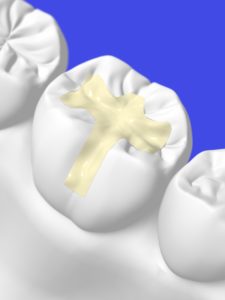 When purchasing a plastic product, you look for BPA-free labels to avoid the potential adverse health complications. As a result, you might be surprised to learn the chemical is in many dental restorations, like fillings and sealants. Research suggests BPA can cause issues with brain development and reproductive systems, so why would it be used in your dental care? Don’t worry, you have other options. Your dentist can use biocompatible dental materials to promote a healthy mouth and body.
When purchasing a plastic product, you look for BPA-free labels to avoid the potential adverse health complications. As a result, you might be surprised to learn the chemical is in many dental restorations, like fillings and sealants. Research suggests BPA can cause issues with brain development and reproductive systems, so why would it be used in your dental care? Don’t worry, you have other options. Your dentist can use biocompatible dental materials to promote a healthy mouth and body.
Risks of BPA Dental Products
BPA (bisphenol A) is an industrial chemical used to make some plastics and resins. Although it has been used since the 1950s, BPA has been under scrutiny over the last several years because it is an endocrine disruptor. The Environmental Protection Agency reports BPA can imitate the body’s hormones, interfering with the production, response, and action of some hormones, like estrogen. Exposure to the chemical has been linked to several health issues, like:
- Early puberty
- Metabolic disorders
- Infertility
- Thyroid dysfunction
- Certain cancers
The fat-soluble compound can be stored in fatty tissues. As a result, it’s best to limit your exposure to BPA. While you can purchase plastic products without it, what about your dental restorations? You have several options when choosing BPA-free dental materials.
Biocompatible Dental Restorations
If you have cavities that need fillings, you can choose BPA-free solutions. Your dentist offers various biocompatible solutions to minimize your exposure to the chemical, including:
- Dental sealants
- Tooth-colored fillings
- Inlays and onlays
- Dental crowns
Although they don’t contain BPA, biocompatible restorations are equally durable. You’ll benefit from natural-looking solutions that can last for years with the right aftercare. Overall, they provide a variety of advantages, including:
- Minimal reduction of natural tooth structure.
- Bonds to the tooth to restore strength.
- More stable than amalgam fillings.
- Provides a tighter seal to prevent bacteria contamination.
- More resistant to fracturing.
- No temperature sensitivity.
- Looks natural to blend in with your smile.
- Quicker process than metal restorations.
- Mercury and metal-free.
Invest in Safe, Biocompatible Solutions
Although the American Dental Association reports the release of BPA to be minimal, many people are concerned about exposure to the chemical. Currently, there aren’t any regulations regarding the use of BPA in dental products.
If you’re concerned about the potential health risks associated with BPA, discuss them with your dentist. Whether you want to replace an old restoration, or you need a new filling, your dentist will create the safe, personalized plan you need to invest in a healthy mouth and body.
Don’t let uncertainties about dental materials keep you awake at night. Your dentist has the biocompatible materials you need to achieve your best smile safely.
About Dr. Nabeel Ahmed
Dr. Ahmed earned his dental degree from Western University before continuing his training in many specialties, like sedation dentistry, root canals, and veneers. He supports the mouth and body connection, providing safe, effective treatments for his patients. If you’re ready to benefit from biocompatible dentistry, contact our office today to schedule an appointment.
